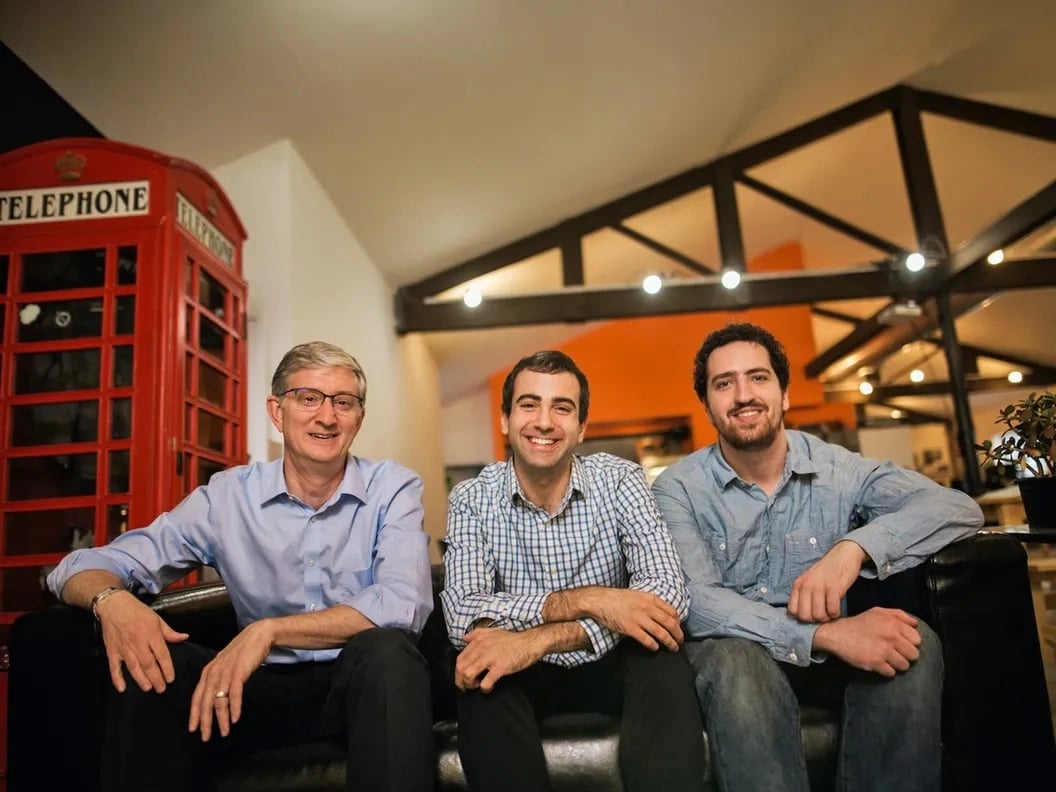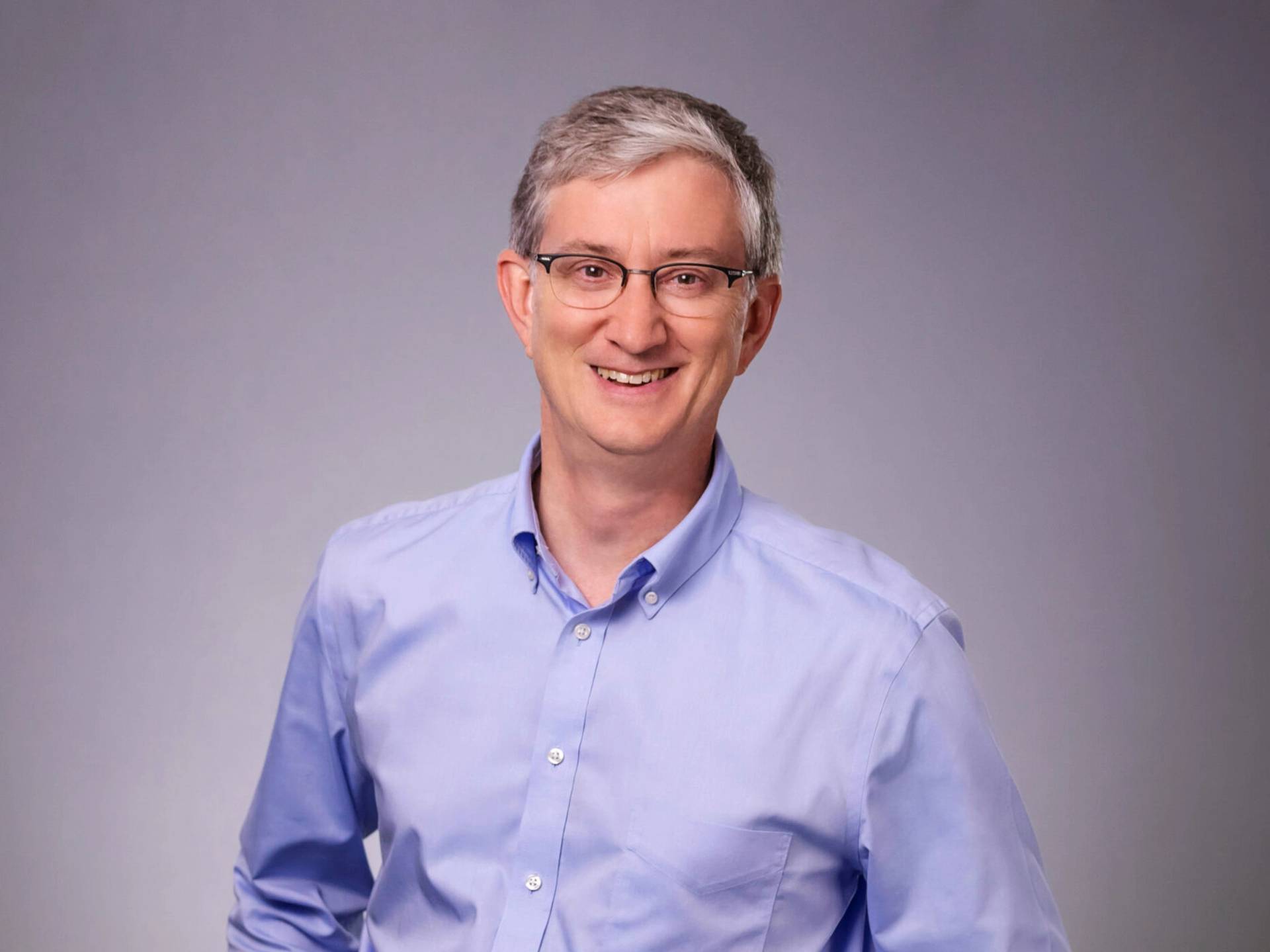위키 구독하기
Share wiki
Bookmark
Ed Felten
0%
Ed Felten
에드 펠튼(본명: Edward William Felten)은 Offchain Labs의 공동 창립자이자 최고 과학자입니다. Offchain Labs는 벤처 지원을 받고 프린스턴 대학에서 설립된 회사로, Arbitrum 개발을 담당합니다. 그는 은퇴한 프린스턴 대학교 컴퓨터 과학 및 공공 정책 교수이자 백악관의 전 미국 CTO 부보좌관이었습니다.[1][2]
교육
에드 펠튼은 캘리포니아 공과대학교(Caltech)에 다녔고 1985년에 물리학 학위를 받고 졸업했습니다. 그는 1986년부터 1989년까지 Caltech에서 병렬 슈퍼컴퓨터 프로젝트에서 스태프 프로그래머로 일했습니다. 그 후 워싱턴 대학교에서 컴퓨터 과학 대학원생으로 등록했습니다. 그는 1991년에 과학 석사 학위를, 1993년에 박사 학위를 받았습니다. 그의 박사 논문은 병렬 프로세서 간의 통신을 위한 자동화된 프로토콜 개발에 관한 것이었습니다. [2]
개인 생활
에드 펠튼은 뉴저지주 프린스턴에 가족과 함께 거주합니다. 2006년부터 2010년까지 그는 전자 프론티어 재단(EFF) 이사회 멤버였습니다. 2007년에는 컴퓨터 기계 협회(Association for Computing Machinery)의 펠로우로 임명되었습니다. [2]
경력
1993년, 에드 펠튼은 프린스턴 대학교 컴퓨터 과학과의 조교수로 임용되었습니다. 1999년에는 부교수로, 2003년에는 교수로 승진했습니다. 2005년에는 프린스턴 대학교의 정보 기술 정책 센터 소장이 되었습니다. 그는 법률 회사, 기업, 사립 재단 및 정부 기관의 컨설턴트로 활동했습니다. 그의 연구는 컴퓨터 보안 및 기술 정책과 관련이 있습니다. [3]
2011년 1월, 에드 펠튼은 연방 거래 위원회의 첫 번째 최고 기술 책임자로 임명되었으며, 이를 위해 프린스턴 대학교에서 1년간 휴직했습니다. [4][25]
2015년 5월 11일, 에드는 백악관의 미국 부 최고 기술 책임자로 임명되었습니다. 공공 업무와 컴퓨터 과학의 교차점에 대한 그의 전문 지식은 그를 정부, 학계 및 자문 분야에서 경험을 쌓도록 이끌었습니다. [2][5]
Offchain Labs
에드 펠튼은 스티븐 골드페더 및 해리 칼로드너와 함께 2018년 9월에 Offchain Labs를 공동 설립했습니다. Offchain Labs는 이더리움을 위한 "Optimistic Rollup" 확장 솔루션인 Arbitrum을 개발하는 벤처 지원 회사입니다. 에드는 프린스턴 대학교에서 Arbitrum 연구를 시작했으며, 그곳에서 공동 창업자들을 만났습니다. [6]
프린스턴에서 세 명의 공동 창업자는 Arbitrum 기술을 개발하고 2018년에 논문을 발표했습니다. Offchain은 이더리움을 확장하고 대중에게 제공한다는 사명으로 설립되었습니다. 에드와 스티븐은 교과서 Bitcoin and Cryptocurrency Technologies의 저자입니다.
"Arbitrum은 사용자와 이더리움 사이의 레이어처럼 작동하여 핵심 이더리움 리소스를 훨씬 적게 사용하면서 블록체인의 모든 보안 보장을 제공합니다." - 에드 펠튼, Offchain Labs 공동 창업자

“이더리움 가스 비용의 온체인 비용은 분산형 애플리케이션의 스토리지가 커지고 실행해야 하는 코드의 양이 커짐에 따라 증가합니다. 이는 가질 수 있는 게임의 복잡성과 정교함을 제한합니다. 따라서 Offchain은 이 문제를 해결하기 위해 실험적인 접근 방식을 취하고 있습니다.” - 에드 펠튼
2021년 8월, Offchain Labs는 시리즈 B 펀드레이징 라운드에서 1억 2천만 달러를 확보했습니다. 이 라운드는 Lightspeed Venture Partners가 주도했으며 암호화폐 투자자인 Polychain Capital, Pantera Capital, Alameda Research 및 Mark Cuban도 참여했습니다. [4][9]
Arbitrum One
2021년 8월, Offchain Labs는 Arbitrum One 메인넷을 공개적으로 출시한다고 발표했습니다. Arbitrum One은 2021년 5월 개발자 대상 베타 출시 이후 플랫폼 액세스를 위해 여러 프로젝트가 등록했습니다. Offchain Labs는 기본 레이어의 보안을 위태롭게 하지 않는 Ethereum 확장 솔루션에 대한 수요를 충족하기 위해 이 플랫폼을 만들었습니다. EVM 호환성은 프로젝트가 계약을 변경하지 않고도 배포할 수 있음을 의미합니다. [9]
Arbitrum Nova
2022년 8월, Offchain Labs는 게임 및 탈중앙화 소셜 애플리케이션을 위해 설계된 체인으로 Arbitrum Nova를 소개했습니다. Arbirtrum Nova는 소셜 미디어 플랫폼인 Reddit을 온보딩하여 커뮤니티 포인트를 체인에 구축했습니다. Nova에 배포함으로써 Ethereum 개발자들이 Reddit 커뮤니티에 접근할 수 있게 되었습니다. [10]
논란 & 프로젝트
미국 대 마이크로소프트
에드 펠튼은 미국 대 마이크로소프트 소송에서 미국 정부의 증인으로 출석하여 소프트웨어 회사인 마이크로소프트가 다양한 반독점 범죄를 저질렀다는 혐의를 받았습니다. 재판 과정에서 마이크로소프트 변호사들은 윈도우 98이 설치된 컴퓨터에서 인터넷 익스플로러 웹 브라우저를 제거하는 것이 윈도우 작동에 심각한 손상을 주지 않고 가능하다는 주장에 이의를 제기했습니다. [11]
펠튼은 이전 제자인 크리스티안 힉스와 피터 크리스와 함께 수행한 연구를 인용하여 인터넷 익스플로러 기능을 윈도우에서 제거해도 운영 체제에 문제가 발생하지 않는다고 증언했습니다. 그는 법정에서 팀의 도구를 시연하여 팀의 도구가 액세스할 수 없게 만든 윈도우 플랫폼에서 웹 브라우저에 액세스할 수 있는 일반적인 19가지 방법을 보여주었습니다. [11]
마이크로소프트는 펠튼이 변경한 사항이 인터넷 익스플로러를 완전히 제거한 것이 아니라 아이콘, 바로 가기, iexplore.exe 실행 파일을 제거하고 시스템 레지스트리를 수정하여 최종 사용자가 해당 기능에 액세스할 수 없도록 만든 것이라고 주장했습니다. 이는 인터넷 익스플로러의 기본 구성 요소의 대부분이 공유 동적 링크 라이브러리에 저장되어 있으며 윈도우에서 실행되는 모든 프로그램에서 액세스할 수 있기 때문에 정확히 무엇이 "웹 브라우저"로 간주되는지에 대한 논의를 촉발했습니다. 마이크로소프트는 또한 펠튼의 도구가 iexplore.exe 외에 윈도우 도움말 시스템과 같은 다른 윈도우 실행 파일을 통해 웹에 액세스할 수 있기 때문에 시스템에서 웹 브라우징 기능을 완전히 제거하지 못했다고 주장했습니다. [11]
SDMI 챌린지
에드 펠튼은 2000년 보안 디지털 음악 이니셔티브(SDMI) 챌린지에 참가하여 디지털 오디오 워터마크 기술을 깨는 시도를 했습니다. 참가자들은 워터마크가 내장된 오디오 샘플을 제시받고 허용할 수 없는 신호 손실을 일으키지 않고 워터마크를 제거하는 임무를 받았습니다. 챌린지에 성공한 사람들에게는 보상이 주어졌습니다. [12]
펠튼은 현금 상금을 받을 자격을 얻을 수 있는 기밀 유지 계약을 체결하지 않기로 했습니다. 그는 워터마크 기술에 대한 최소한의 정보만 제공받았고 3주 동안만 작업할 수 있었습니다. 그럼에도 불구하고 그의 팀은 SDMI의 자동 심사 시스템이 워터마크가 제거되었음을 나타낼 정도로 파일을 수정하는 데 성공했습니다. SDMI는 펠튼이 음질 유지를 포함하는 경쟁 기준을 충족했는지 확인하지 않았습니다. 파일에서 모든 소리를 지우는 제출물은 워터마크를 제거했지만 품질 요구 사항을 충족하지 못했을 것이기 때문입니다. [12]
SDMI 소송
Ed Felten과 그의 팀은 SDMI 워터마크를 뚫는 데 사용한 기술에 대한 과학 논문을 발표했습니다. 피츠버그에서 열리는 2001년 제4회 국제 정보 은닉 워크숍에서 논문을 발표할 계획이었을 때 Felten은 SDMI, 미국 음반 산업 협회(RIAA) 및 Verance Corporation으로부터 DMCA 조건에 따른 잠재적인 법적 조치에 대한 통지를 받았습니다. [13]
결과적으로 Felten은 워크숍에서 발표를 철회하고 대신 상황에 대한 간략한 성명을 읽었습니다. SDMI 및 기타 저작권 보유자는 Felten을 고소하겠다고 위협한 적이 없다고 부인했지만 대변인 Matt Oppenheim은 Felten에게 편지에서 *"공개 챌린지에 참여하여 얻은 정보의 공개는 디지털 밀레니엄 저작권법에 따라 귀하와 귀하의 연구팀을 조치 대상이 되게 할 수 있습니다."*라고 경고했습니다. [13]
Felten은 전자 프론티어 재단의 도움을 받아 그룹을 고소하여 논문 발표가 합법적이라는 선언적 판결을 요청했습니다. 이 사건은 소송 자격 부족으로 기각되었습니다. Felten은 2001년 USENIX 보안 컨퍼런스에서 논문을 발표했습니다. 미국 법무부는 Felten과 다른 연구원들에게 DMCA가 그들의 연구를 위협하지 않는다는 보증을 제공하고 그들에 대한 법적 위협이 무효라고 밝혔습니다. [14][15]
Sony 루트킷 조사
2005년, 보안 연구원은 특정 음악 CD에서 발견된 Sony BMG의 확장 복사 방지 소프트웨어에 운영 체제를 손상시키고 CD를 재생할 때 사용자의 컴퓨터를 공격에 취약하게 만들 수 있는 숨겨진 파일이 포함되어 있음을 밝혔습니다. [16]
Sony는 복사 방지를 제거하기 위해 소프트웨어 패치를 출시했지만, Felten과 Halderman은 이 패치가 제거 프로그램에서 사용하는 Active X 컨트롤 형태의 루트킷을 설치하고 사용자의 컴퓨터에 남겨두어 사용자가 방문하는 모든 웹 페이지가 임의의 코드를 실행할 수 있도록 설정하여 사용자의 컴퓨터를 공격에 더욱 취약하게 만든다는 것을 보여주었습니다. Felten과 Halderman은 블로그 게시물에서 이 문제를 다음과 같이 설명했습니다.
이 결함의 결과는 심각하며, 방문하는 모든 웹 페이지에서 컴퓨터에 원하는 코드를 다운로드, 설치 및 실행할 수 있습니다. 모든 웹 페이지가 컴퓨터를 제어할 수 있으며, 원하는 모든 작업을 수행할 수 있습니다. 이는 보안 결함이 가질 수 있는 가장 심각한 수준입니다. [16]
DieBold 투표 기계 분석
Ed Felten, Ariel Feldman 및 Alex Halderman은 2006년 9월 13일에 Diebold Election Systems(현재 Premier Election Solutions) 투표 기계에서 보안 결함을 발견했습니다. 그들의 연구 결과는 다음과 같이 주장했습니다.
"단일 투표 기계에서 실행되는 악성 소프트웨어는 탐지될 위험이 거의 또는 전혀 없이 투표를 훔칠 수 있습니다. 악성 소프트웨어는 투표 기계에서 보관하는 모든 기록, 감사 로그 및 카운터를 수정할 수 있으므로 이러한 기록을 주의 깊게 조사해도 아무런 이상을 발견할 수 없습니다." [17]
Sequoia 투표 기계 분석
뉴저지 선거 관리들은 2008년 초에 Ed Felten과 Andrew Appel에게 분석을 위해 하나 이상의 Sequoia Advantage 투표 기계를 보낼 것이라고 발표했습니다. 그러자 Sequoia는 2008년 3월 Felten 교수에게 이메일을 보내 기계를 검사하는 것은 Sequoia와 기계를 구매한 카운티 간의 라이선스 계약을 위반하는 것이며 지적 재산권이 침해될 경우 법적 조치를 취할 것이라고 주장했습니다.[18] 이는 컴퓨터 기술 활동가들의 분노를 일으켰습니다. [19][20]
Felten과 Appel은 조사 결과 기계의 정확성 문제를 발견하고 몇 분 안에 해킹하여 손상시킬 수 있었습니다.[21][22] 직후 Sequoia의 회사 웹사이트가 해킹되었습니다. 이 해킹은 Ed Felten에 의해 처음 발견되었습니다. Sequoia는 3월 20일에 웹사이트를 폐쇄하고 '침입적인 콘텐츠'를 제거했습니다. [23]
콜드 부트 공격
2008년 2월, Ed Felten과 그의 학생들이 이끄는 팀은 콜드 부트 공격을 발견했습니다. 이 공격은 물리적 접근 권한이 있는 컴퓨터에서 운영 체제 보호를 우회하여 메모리 내용을 검색할 수 있게 합니다. [24]
수상 내역
잘못된 내용이 있나요?
